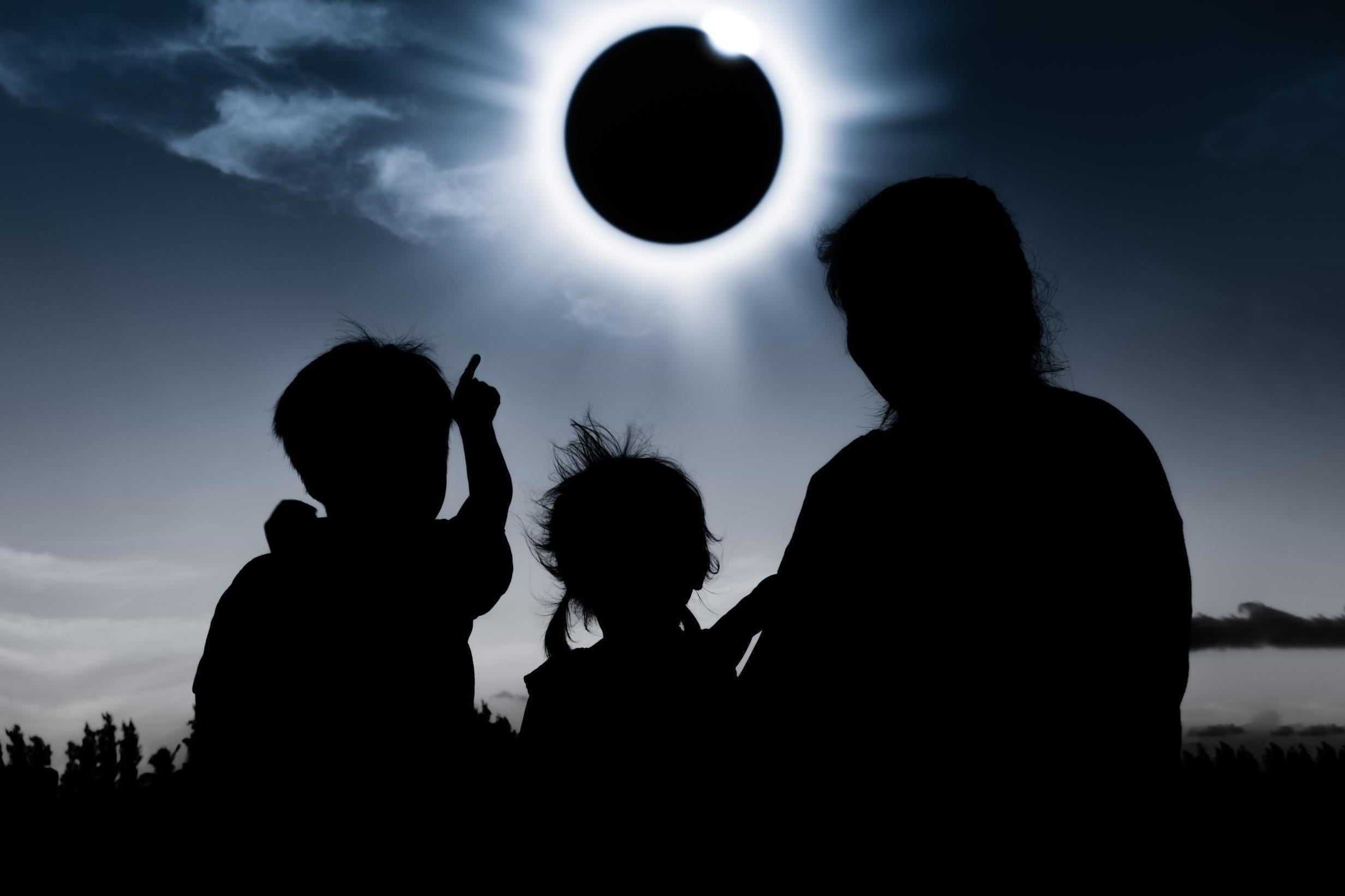When is the next total solar eclipse and where will you be able to see it?
The moon will block out the sun for the first time since August 2017

If you happened to miss the last total solar eclipse, which took place in the summer of 2017, the good news is another one is coming within weeks.
On 2 July a total solar eclipse will occur, lasting four minutes and 33 seconds, according to Nasa.
Here's everything you need to know about the 2019 solar eclipse.
What is a total solar eclipse?
While orbiting the Earth, the moon occasionally comes between the sun and Earth. When this occurs, the moon blocks light from the sun from reaching Earth and casts a shadow.
A total solar eclipse, which takes place when the sun, moon and Earth are in a direct line, is only visible from a small area of our planet, according to Nasa, with the people able to see it “in the centre of the moon’s [umbra] shadow when it hits Earth”.
Where will you be able to see it?
The total solar eclipse will be visible in the South Pacific, Chile and Argentina.
According to Bloomberg, the eclipse will begin off the coast of New Zealand, with Chile and Argentina directly in the path of totality.
The total eclipse will only be viewable for a small window of time, with viewers in San Juan, Argentina, expected to see 36 seconds of totality and those in La Silla, Chile, predicted to see one minute and 53 seconds.
In Chile's Elqui Valley, more than a quarter-million visitors are expected in the days surrounding the eclipse.
Parts of Ecuador, Brazil, Uruguay and Paraguay will be able to see a partial eclipse if weather permits.
What time will it take place?
According to Space.com, most of the eclipse will be happening over the Pacific, with the partial eclipse starting at 12.55pm EDT (1655 GMT).
Totality will first make landfall over Oeno Island, in the South Pacific Ocean, at 10.24am local time.
The eclipse will reach the coast of Chile by 4.39pm local time and then move southeast, before heading to the Atlantic at 5.40pm local time.
The length of the eclipse is expected to be nearly double the length of the one that took place on 21 August, 2017.
What do you need to know about viewing a solar eclipse?
During a total solar eclipse, the sun can be viewed safely by the naked eye. However, during partial eclipses, it is never safe to watch the sun without taking special precautions, as doing so can lead to permanent eye damage.
You can find more information about protecting your eyes during a solar eclipse here.
To see a total eclipse, you don’t need equipment such as a telescope.
When is the next total solar eclipse?

The next total solar eclipse will take place next year, when the moon again lines up with the sun and the Earth on 14 December 2020.
Join our commenting forum
Join thought-provoking conversations, follow other Independent readers and see their replies
Comments
Bookmark popover
Removed from bookmarks